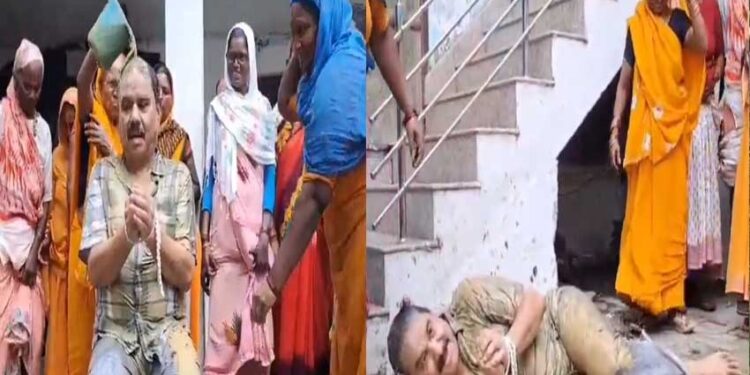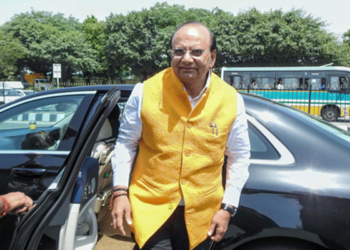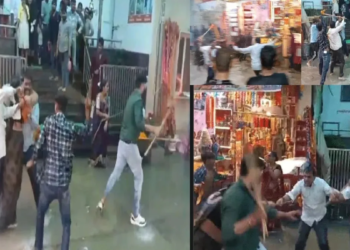Pandit Jhabarmal Sharma (English: Jhabarmal Sharma, Birth: 1888 – Death: January 4, 1983) was a veteran litterateur, journalist and historian of Rajasthan. Pt. Jhabarmall had written his last book on ‘Nehru Genealogy and Rajasthan’. He wrote many investigative articles on Rajasthani manuscripts. He was given national honour, was decorated with Padma Bhushan title. Pandit Jhabarmall Sharma was one of those Hindi journalists who devoted most of his life to protecting the reputation of his predecessors and contemporary litterateurs. Besides being a high-class journalist, you were a great scholar of history, literature and culture.
life introduction
Pandit Jhabarmall Sharma was born in 1888 to Pandit Ramdayalu in Jasrapur village near Khetri state of Rajasthan. His father was a famous Sanskrit Pandit and Piyushpani doctor of Ayurveda. He did not receive his education in any college or university. Sitting at the feet of his father, he acquired knowledge of languages like Sanskrit, Hindi, English and Bengali. In 1905-06, he went to his father’s Vidya Guru Gananath Sen’s group and started living in Calcutta and there expanded the scope of knowledge through continuous self-study.
Journalistic inclinations
Due to contact with the famous Hindi journalist Pandit Durga Prasad Mishra, you got inclined towards journalism and in 1905 you became the editor of the newspaper “Gyanodya” published from Calcutta. At that time you also helped in the editing work of “Marwari Bandhu”. In 1909, he became the editor of “Bharat” weekly newspaper published from Bombay and went there. In those days, “Bharat” was the only Hindi newspaper in which full-page satires were published. When “Bharat” was closed due to economic reasons, you went to Nagpur on the invitation of All India Maheshwari Sabha as the editor of its mouthpiece “Marwari Patra”. When his health deteriorated there, he returned to his birthplace Jasrapur for health improvement.
Establishment of ‘Calcutta News Company Limited’
“Calcutta Samachar Company Limited” was established from Calcutta in 1914 on the auspicious festival of Janmashtami and started publishing “Calcutta Samachar” daily from here. He used to edit the paper himself. When Sharmaji started a movement through “Calcutta Samachar” against the “Rowlatt Act”, the Governor threatened that if any more disturbances were created, the Marwaris would be sent back to where they had come from. When Sharma ji expressed a strong reaction against this threat of the Governor in an editorial titled “Governor’s Anger”, the government demanded a bail of two thousand rupees from the letter. The directors of the company decided that they would not release the letter after giving security. Publication was stopped. After a few days, the publication of “Calcutta Samachar” was started again under the ownership of another industrialist. Jhabarmall Sharma continued editing the paper. Till 1925, “Calcutta Samachar” was published from Calcutta.
special contribution
After this, on the inspiration of famous leader of Sanatan Dharma, Lecturer Vachaspati Pandit Deendayalu Sharma, Kunwar Ganesh Singh Bhadauria and Pandit Jhabarmall Sharma brought “Calcutta Samachar” to Delhi in 1925 and from here it started getting published under the name “Hindu Sansar”. In 1926, when “Hindu Sansar” was prosecuted on behalf of the Home Minister of Tehri-Garhwal, you took the entire responsibility of the letter related to the Home Minister of Tehri-Garhwal published in your newspaper and did not reveal the name of the author of the letter. The ideal of journalism was established. When this case took place, your father was unwell in the village. To take care of them, you started living in the village. Even there, you did not stop your literary work and established “History Research House” in Jasrapur and started publishing books related to Hindi literature, district literature and history through it. During the same period, he also formally established a branch of “Ramakrishna Mission” in “Khetri” in 1958.
Compositions and edited books
He has many self-written compositions and edited books. “Rajasthan and Nehru-Family” published in the last days of his life is especially noteworthy. This book was released by the staff of the then Prime Minister Smt. Indira Gandhi at the Prime Minister’s residence on 26 May 1982. While “Rajasthan Manch, Delhi” had dedicated a huge “Abhinandan Granth” in 1977, the Uttar Pradesh government had also honored Pandit Jhabarmall Sharma with a special award remembering his Hindi services.
Honors and Awards
Was honored with “Padma Bhushan” by the Government of India in 1982.










